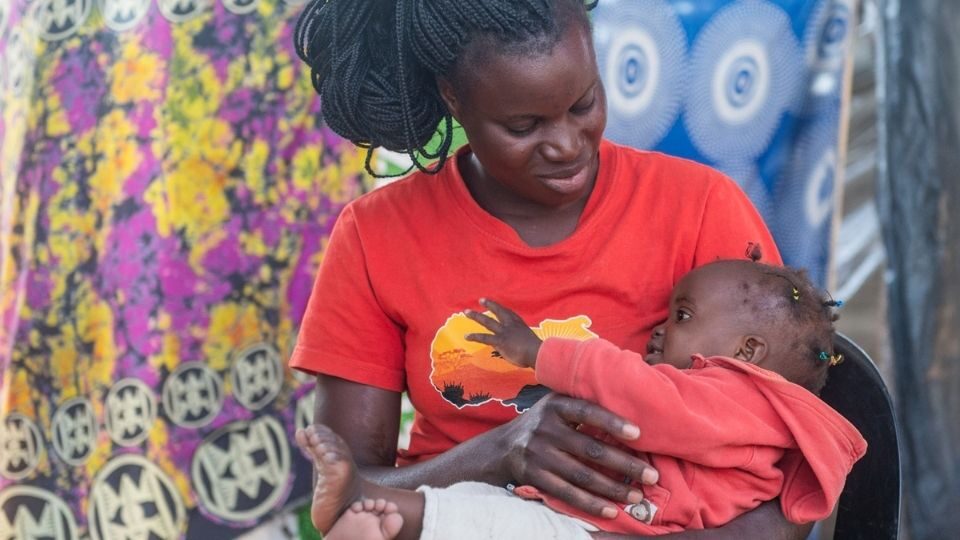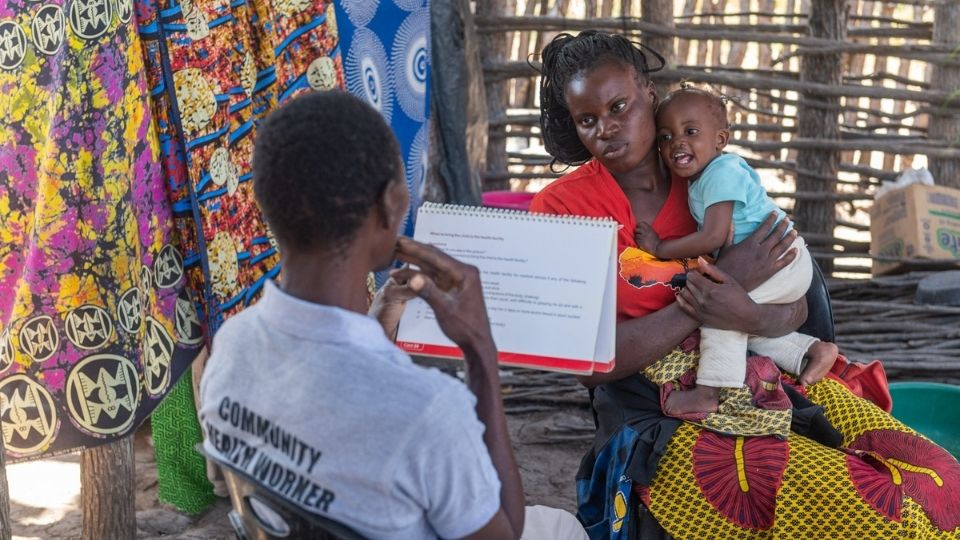Fighting Childhood Malnutrition in Remote Communities

For mothers in the remote communities where we work, the nearest health clinic can be hours away. Without reliable transportation, a visit to the health clinic is not always an option when their children fall sick from preventable illnesses like malnutrition. Community health workers are helping to fill that gap by delivering life-saving care directly to households.
This can be the difference between life and death.
One life-saving way community health workers support mothers and children is by reducing malnutrition. They visit households to monitor children’s growth and treat malnutrition before it becomes severe. They educate mothers on how to prepare more nutritious meals with local ingredients. They provide mothers with special nutritional supplements like Plumpy’Nut, a peanut-based paste to help children gain weight.
Sitali is a single mother of two living in a remote village in Zambia. She has experienced the life-saving impact of community health workers. Last year, Sitali gave birth to her second child, Catherine. After being born, Catherine had difficulties with eating and receiving proper nutrition. This caused her to become very underweight and stunted her growth.
“During the time Catherine had stunted growth, the CMMB community health worker regularly visited me and shared health education on how to take care of my child,” said Sitali.
“The community health worker also gave me Plumpy’Nut to feed Catherine until her condition improved. When I started feeding her Plumpy’Nut, I noticed Catherine’s appetite increased—and she started to improve and gain weight,” she said.
The community health worker also taught Sitali how to cook a nutritious porridge mixed with ground nuts.
“As a mother, seeing my daughter underweight was such a disheartening experience. Now, I feed her at least four times a day. When I look at Catherine, I feel happy because she is slowly getting back to normal and is now more active,” said Sitali.
